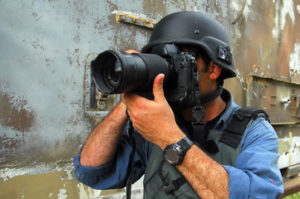Career options after working for media organizations
Journalism career is often thought of as working for a newspaper, television or internet company. In most cases, this is true, but one can pursue several other options after a “normal” journalism career. These choices are now available as a result of the evolving nature of the profession. The internet has further triggered this possibility, with new media careers available for making news and information accessible to all across the globe instantly.
The changing dynamics of journalism have created new job opportunities across several areas, spreading its wings to related careers. Let’s take a look at the career options available after gaining some experience in the profession.

Columnist: You can have a dedicated column in which you write your views. It is possible to develop a fan-base for the views you express.
Critic: A critic analyses other people’s work from a variety of angles. Critics are often quoted by others as well. You may create your own publication on the Internet or in print, and make your reviews available to others.
Proof-reader, copy editor and content editor: If you have strong language and grammar skills, and a knack for storytelling, these professions are open to you. You may work for several publications as well as edit books and magazines.

Photo-journalist: A story is often best told through still and video images. Photo journalism and documentaries are excellent media. You may work at your own pace independently, and contribute to one or more media sources.
Media specialist: As you gain experience working for media houses, you are qualified to work as an independent consultant or PR representative of any company.
PR Relations: Managing a brand’s identity across media is the crux of a PR job. All types of companies – large corporations, smaller companies, family run business — need PR.
Scriptwriting: This is one of the recent additions to the career options after journalism. After acquiring the basic skills of writing and the ability to bring the essential factors together, you can venture into writing scripts for various media, especially for documentaries, television features and even movies. Script writing is not only for short films or videos, but it could also be for corporate films and product videos. Good scripts bring about a good narrative, sequencing, and getting the message/story out in an interesting fashion.

Copy Writing: This is for those who write for advertising, blogs and promotional articles.
Social Media Writing: Writing for social media is another attractive option that has opened up. Every social media material, especially those intended to attract traffic to websites, has very unique features and strengths. Crafting content for these means knowledge of creating attractive images, short videos, catchy headers and subtitles and other features that bring the audience to the message you wish to promote.
Blogging– Blog writing has gained considerable attention over the years. Bloggers have influenced public opinion, and have hence made lucrative careers out of it. The skill to write is the key to writing a blog and is the art that journalism teaches you!
The evolving process through journalism
By the time you finish the journalism course at IIJNM, you have developed the skills to cover and publish news, whether they are in print, television or on the internet. You have also gained the ability to balance and report fairly the events you cover. Depending on the course you complete, you will be ready to present news reports in newspapers (print journalism), TV (broadcast journalism), or online (multimedia journalism). These options are in broad categories; making a choice between them is the first decision one makes.
The starting job is the next important step. It gives you the corporate experience and good exposure to the life in the media. You will learn where your strengths are, and soon you will be ready for the specialization you wish to take up. After working in a media organization for a while, you might be ready for an independent career in the field you have chosen or in a related area.
Whichever role you prepare for, thoroughness and resourcefulness matter most. Being open to learning will help to fine-tune your skills.
Links: http://www.indiaeducation.net/careercenter/masscommunication/journalism/
